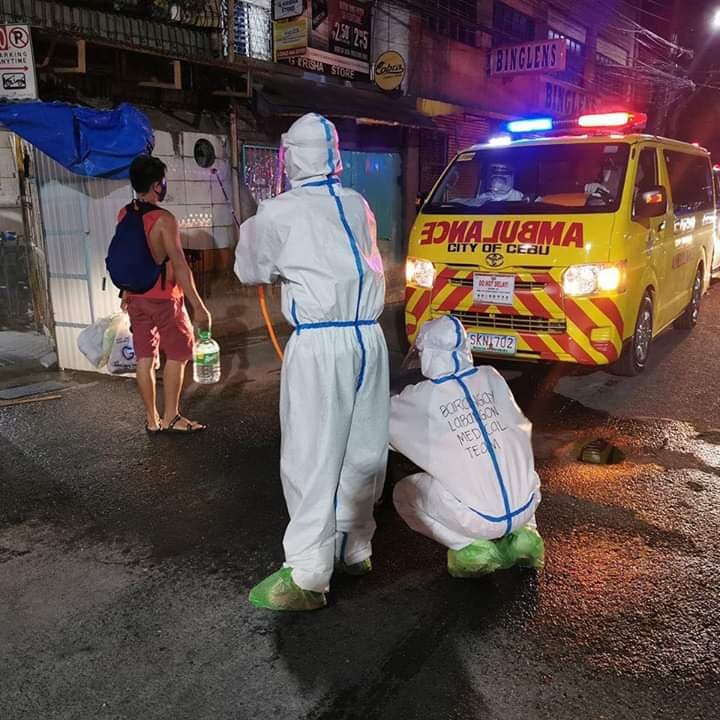
Cebu City medical officer transfer the COVID-19 patients from Barangay Labangon to the isolation center. | Photo courtesy from the Facebook page of Mayor Edgardo Labella
CEBU CITY, Philippines –Noting a recent resurgence in the number of coronavirus disease 2019 (COVID-19) cases in Cebu, experts from the University of the Philippines (UP) said authorities here should stay in high alert.
On April 22, 2020, UP published an updated version of their earlier report titled “COVID-19 Forecasts in the Philippines: Insights for Policy Making,” stating that the cases in Cebu have rebounded despite enhanced community quarantine (ECQ) in effect.
The analysis, penned by Dr. Guido David from the Institute of Mathematics, Ranjit Singh Rye of the Department of Political Science, and Ma. Patricia Agbulos of OCTA Research, showed that reproduction rate of the virus within the island has reached 5.9 in the last seven days.
“However, a resurgence of cases from April 15 has put the province back in a high alert level…. The pandemic is far from over in the province,” the study said.
Reproduction rate is used to measure the impact of the pandemic’s transmission.
Experts from the country’s national university also did not include Cebu in their list of ‘provincial candidates for a modified ECQ’.
They added that the government should be paying attention to the developments in Cebu, and ECQ is still necessary to contain COVID-19.
“The resurgence (of COVID-19 cases) in Cebu means that ECQ must be implemented strictly,” the study said.
There are already 361 individuals in Cebu who were confirmed to have been infected with the virus on April 22 when the report was published.
Over 90 percent of these figures are recorded in Cebu City, the province’s capital.
Premature lifting of ECQ
The Department of Health in Central Visayas (DOH – 7) said an increase in the number of COVID-19 cases in the region, where Cebu is part of, is expected as massive testing has commenced.
However, they cautioned the public not to take the pandemic lightly as they have observed a shift in its dynamics – particularly on the age distribution among those who were infected.
The study also renewed calls for local and national public officials not to lift ECQ prematurely, and to do mass testing to detect asymptomatic individuals and track the pandemic’s extent.
“Mass testing and tracking of cases will help give a more accurate value for the number of COVID-19 cases, and to identify these silent spreaders,” they stated.
Originally published last April 13, UP’s study was intended to provide insights for the public sector in doing decisions related to the COVID-19 pandemic, particularly the implementation of ECQ as containment measures. /bmjo